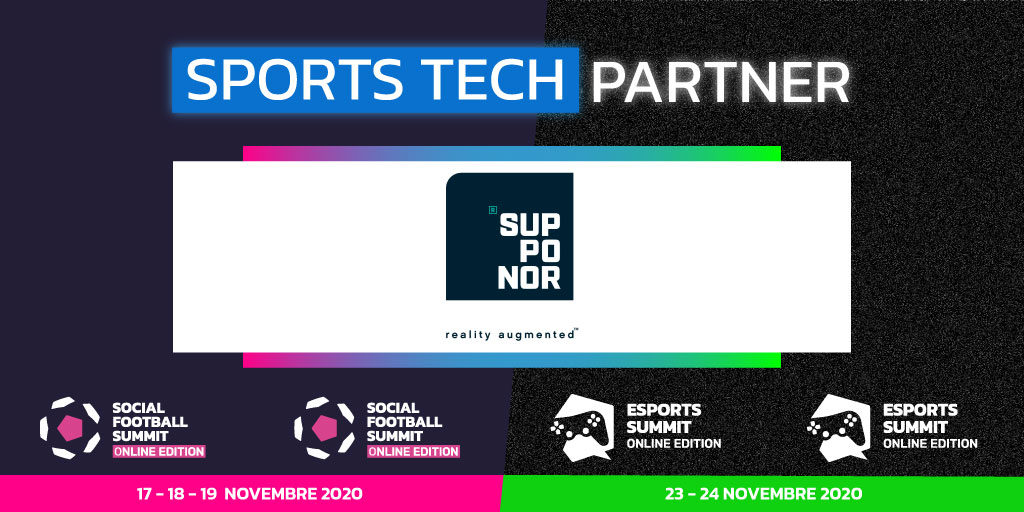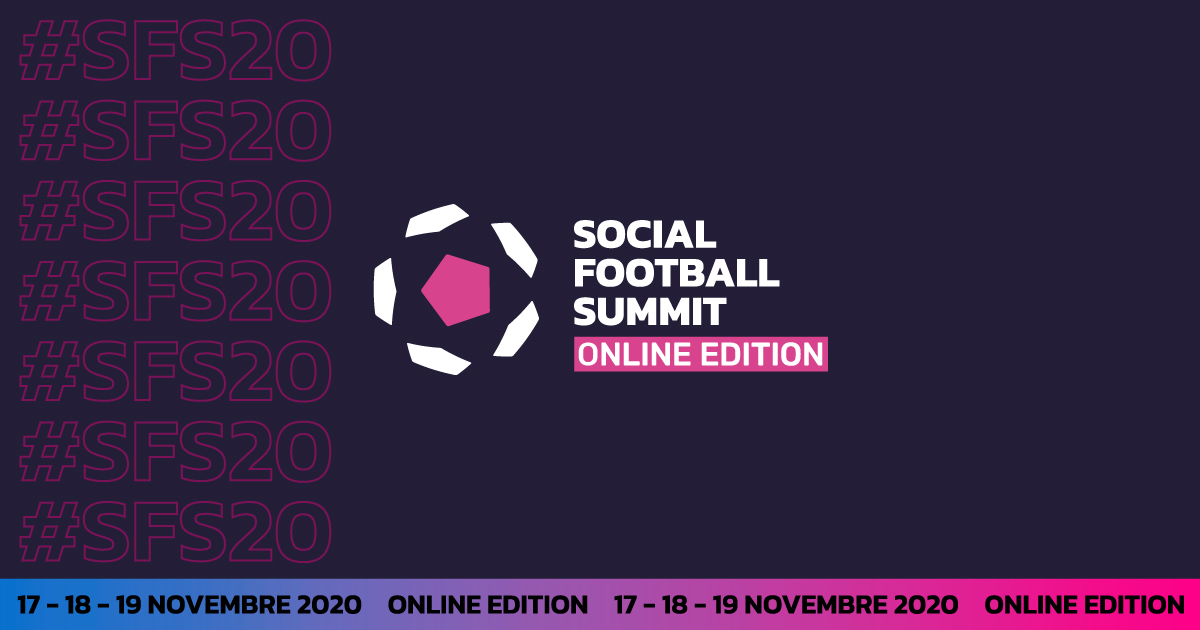Virtual Advertising in Football Industry, interview with Massimo Magrì, EU Commercial Director at Supponor
An innovative technology for the world of sport, already adopted by several Top-Tier leagues
Virtual advertising is a solution to give visibility to different brands in an area that is traditionally dedicated to a single brand, as in the case of the LED boards on the sidelines. This is a highly technological innovation and a channel for clubs and leagues to increase their revenues.
Being able to show different advertising and expose a multiple brands at the same time in different markets, is an evolution we could have never foreseen 10 years ago. However, several key players in the sports industry have actually been deploying virtual technologies for years already.
We had a chat about this interesting topic with Massimo Magrì, EU Commercial Director of Supponor, a London-based company and market leader in the virtual advertising space,having successfully and commercially deployed virtual advertising solutions in top sports leagues in the world.
Hi Massimo, what leagues, clubs, and brands are currently focusing on virtual advertising?
Historically, LaLiga in Spain have been a pioneer with Supponor in exploring this new marketing tool for over eight seasons. Note that in Spain, they have refined this tool so much that they manage to enable up to 11 different signals per game to be distributed in specific regions and countries.
The Bundesliga in Germany must also be considered a pioneer in all aspects. As it approved our technology three years ago to be broadcast in various international markets.
Overseas, the NHL and NBA are also very active in this area. In fact, they have already had experiences on air in 2016, 2019, and most recently during the All Star events in the months before the outbreak of the pandemic, and both are looking for ways to start deploying these solutions on a very large scale.
Virtual advertising is a technology that can become an additional source of monetization for some rights holders, but how accessible is it for smaller clubs and leagues? What are the weaknesses of this technology and what are the strengths?
Until now, the costs of managing the technology have represented a barrier to entry, reserving its use only to top-tier rights holders. The technological evolution that we are observing, however, is making it increasingly accessible to the point of becoming a commodity in the next 12/18 months. We need a maturation process both on the technological side and on the conscious exploitation of the marketing rights.
The use of technology will allow right holders not only to increase revenues from marketing rights but also to enable a more effective channel of communication with their target audiences.
Has the health emergency somehow slowed down the positioning and use of recent technologies such as augmented and virtual reality in football, or was it rather an accelerator?
It was definitely an accelerator. As in almost all life situations, necessity refines the ingenuity.
The current period of closed-door matches has forced clubs to contend with significant revenue losses (initial studies have shown the immense financial impact of the pandemic on the sports industry, with the Big Five European Football leagues expected to lose up to €4bn in revenues in the 2019-20 season alone) and a forced detachment from their fans who were unable to enter the stadium.
Virtual technology has made it possible, for example, to cover the empty stands with institutional messages, advertisements (to compensate sponsors for having lost the possibility of using hospitality assets or activate marketing rights), bring the fans closer to the event (social live streaming) and make the stadiums appear a little more appealing on TV.
This forced choice in many cases has led the clubs to deal with the use of virtual technologies for the first time to become familiar with them, and understand how in the future they will see it as an integrated part of their commercial offering.
You worked alongside professionals who dealt with the marketing of TV rights and this sector more generally. In your opinion, how can some football clubs today make their business model less obsolete? And is the distribution of TV rights actually soas unbalanced in Italy in comparison to other markets?
The use of virtual advertising is certainly the most innovative tool that the sports marketing industry has been waiting for during some years now. As said, we are experiencing a very important frontier moment from this point of view: the transition from global communication that is the same for everyone, to increasingly personalized communication addressed in a more specific way. This in addition to bringing additional revenue lines will also make messages more relevant to consumers and more accessible for smaller, regional brands.
Are there any other innovations or technologies that will drastically influence the world of advertising in the Football Industry in the medium term?
The next frontier will certainly be that of advertising profiled on the individual user: two people sitting side by side on the subway watching the same sporting event will have different advertisements on the sideline boards, more specific and relevant to their tastes and interests.
It sounds like science-fiction, but it really is not. We may not realize it, but when we watch a video on various social platforms, this already happens.
You recently joined SUPPONOR. How do you approach the world of virtual advertising as a professional, and therefore what are the skills and approach that someone who wants to do your job must have?
Before joining Supponor, which is a technology company, I spent 14 years at a world leading media and marketing rights agency specializing in sports events. The role of the agency is crucial because it operates right at the centre of an ecosystem made up of right holders (clubs and sports federations), sponsors (who are considered the investors), and suppliers of technological innovation that provide tools to maximize revenues.
This allowed me to learn on the one hand what brands wanting to invest in sporting events ask for, and on the other what to offer to right holders to meet the needs of the brands. This is proving crucial for me to guide technological innovation in the right direction to be functional to the various market players.
Thanks a lot Massimo for the interview, very interesting. We hope to see you soon.



